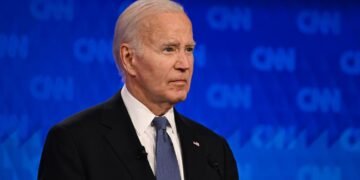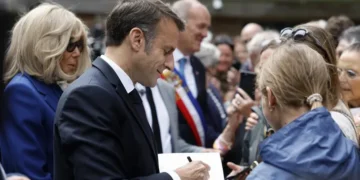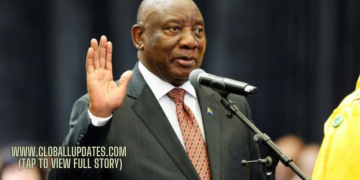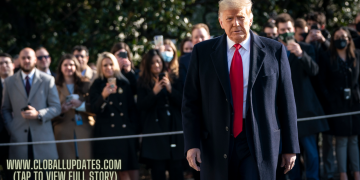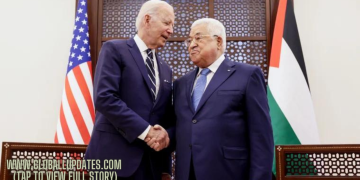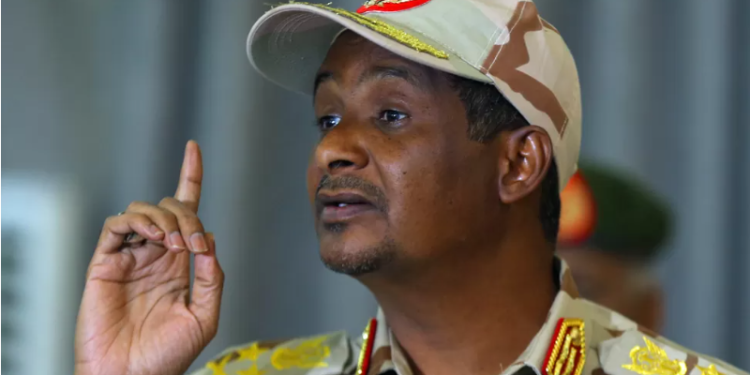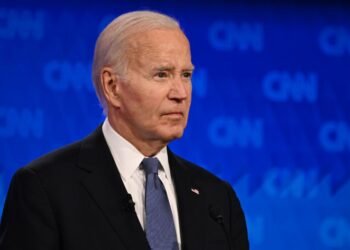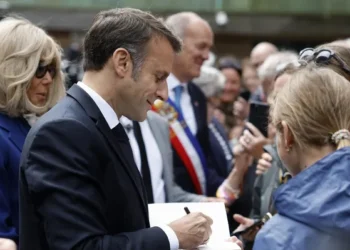One of Sudan’s rival generals, who commands the paramilitary group battling the nation’s army, has told the BBC that negotiations would not begin until the fighting has ceased.
However, since a three-day truce had been extended, Gen. Mohamed Hamdan Dagalo, also known as Hemedti, claimed that his fighters were being “relentlessly” bombed.
He attributed the violence to army head Gen. Abdel Fattah al-Burhan and declared, “We don’t want to destroy Sudan.”
Gen. Burhan has tentatively agreed to meet in South Sudan for face-to-face negotiations.
An uneasy ceasefire was extended on Thursday night as a result of strong diplomatic efforts by the US, UK, and UN as well as the adjacent nations.
Hemedti told the BBC over the phone that he was open to negotiations as long as the ceasefire held: “Cease hostilities. We can then begin discussions after that.
Although he claimed to have no personal issues with Gen. Burhan, he viewed him as a traitor for bringing into power those who supported the ousted former president Omar al-Bashir, who was overthrown by the army and RSF jointly in 2019 following protracted street demonstrations.
Bashir’s dictatorship, which ruled for three decades, was well-known for its stringent application of Sharia (Islamic law) and Islamist philosophy.
Hemedti stated, “Unfortunately, Burhan is being led by the extremist Islamic front leaders.
He and Gen. Burhan staged a coup in 2021 and annulled a deal to share power with civilians.
They disagreed this year regarding the timeline for integrating Hemedti’s 100,000-strong Rapid Support Force (RSF) into the army and the projected return to civilian rule.
“I am eager to have a totally civilian government now rather than waiting till tomorrow. My guiding concept is this, Hemedti told the BBC.
The RSF chief has previously stated his dedication to democracy, despite the fact that observers point out that in the past, his forces have ruthlessly suppressed civilian protests.
Hemedti told the BBC that his RSF fighters were not fighting against military personnel, saying that they were engaged in a conflict to save the nation from “the remnants of the government of the past 30 years.”
“We won’t fight with you. We won’t fight you if you return to your army divisions.
Fears intensify as violence increases
Hemedti’s remarks to the BBC come while millions of people are still stranded in Khartoum, the capital of Sudan, where there are food, water, and gasoline shortages.
According to AFP, trenches have been dug in several areas of the city as opposing troops engage in street-by-street combat.
According to the UN, RSF troops are evicting individuals from their houses and engaging in looting and extortion.
Hemedti, however, claimed to the BBC that his competitors were discrediting his fighters by showing up in RSF garb.
He vehemently denied being involved in robbing and occupying hospitals, claiming that his troops were attempting to aid citizens of a city that was still in shock from violent clashes that had started 14 days before.
The water and electrical supply for the territories we oversee are a priority for my staff. Unfortunately, every engineer and technician has vanished. And this is the main issue we have,” he added.
According to data from the health ministry, at least 512 people have died and 4,193 have been injured during the violence, however the actual death toll is probably far higher.
According to the UN, hundreds of thousands of Sudanese have currently abandoned their homes, many paying significant sums of money to do so and suffering maltreatment along the way.
Tens of thousands of Sudanese have entered neighbouring nations like South Sudan, Chad, and Egypt in addition to the thousands of foreigners that have been evacuated.
According to a UN official quoted by Reuters, some people have travelled more than 400 kilometres (250 miles) on foot from Khartoum to the South Sudanese border.
A Turkish evacuation plane was earlier fired upon as it touched down at an airstrip south of Khartoum. No one was hurt, and the RSF refuted army claims that it was complicit.
Those who are still in Khartoum spoke of a “constant state of fear” there.
“We can hear the noises of explosions and jets. We don’t know when this misery will come to an end, said Mahasin al-Awad, 65, a resident of Bahri in Khartoum’s north.
The RSF and militias affiliated with the organisation are alleged to have plundered and set ablaze markets, aid storage facilities, and banks in El Geneina, a city in Darfur in western Sudan.



